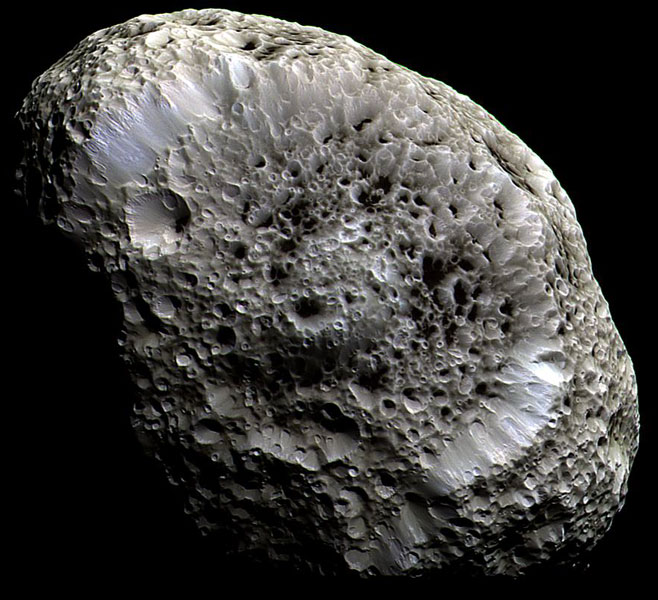 It says here, that Saturn's moon Hyperion is "a remarkable world strewn with strange craters and a generally odd surface."
It says here, that Saturn's moon Hyperion is "a remarkable world strewn with strange craters and a generally odd surface."Oh, wait.
This post is supposed to be about the British record label Hyperion, 30 years old this month. Well, speaking of remarkable worlds...
Back in the days before downloads, or before Nereffid's Guide, neither of which is that long ago really, I sat down with a Gramophone Good CD Guide and made a list of all the Hyperion entries. It was a long list, and more to the point it was an intriguing one. I don't think I've lost my fascination, though I still haven't made much of a dent in the list in terms of actually hearing the recordings. As for browsing through the printed Hyperion catalogue, well that's a special pleasure, with page after page of unfamiliar repertoire in performances you just know are going to be wonderful. Along the bottom of each page there's a ticker tape-style running commentary from the label's fans (best quote: 'My wife said to me as I sat studying the pages of your supplement: "I remember when you used to look at me like that"!!!'). Is there another label quite as reliable, that inspires quite as much enthusiasm? Remember, 5 years ago the company faced legal bills of £1 million over a disastrous copyright case and was bailed out in part by donations from the record-buying public (me included; I think I paid for a couple of seconds of Robert King's Monteverdi Vespers).
Unfamiliar repertoire might be one of Hyperion's strengths, along with the occasional highly ambitious project - the complete Schubert songs, for all love - but take a look at Hyperion's "30th Anniversary Series", mid-price rereleases of 30 "landmark titles": Bach, Brahms, Chopin, Fauré, Mozart, Rachmaninov, Schubert, Schumann, Vivaldi... There's not much there that could be called "obscure", which leads us to our thought experiment of the day...
Imagine a world where no recording made by one of the 4 major record labels, or by any company now owned by a major, does not exist. We lose a lot, of course; in fact we lose almost everything recorded before Hyperion's founding in 1980 (Harmonia Mundi, BIS, and Chandos are older than that). Obviously this would be a bad thing. But what are we left with? Could classical music enthusiasts survive in this terrifying world, barren as it is of so many of the great performers and orchestras? Would a new generation of listeners realise that something was missing, or would they be perfectly happy with the independent labels' take on the basic repertoire?
Such thoughts spring partly from what I wrote the other day about the perils of comparative listening, rather than from any case of "indie snobbery". In many cases we can easily say Somebody Already Did It Better, but history can have a very heavy weight at times.
What if Hyperion were the only label in the world?
I think we'd do OK.
So: Hip-hip-Hyperion!
No comments:
Post a Comment